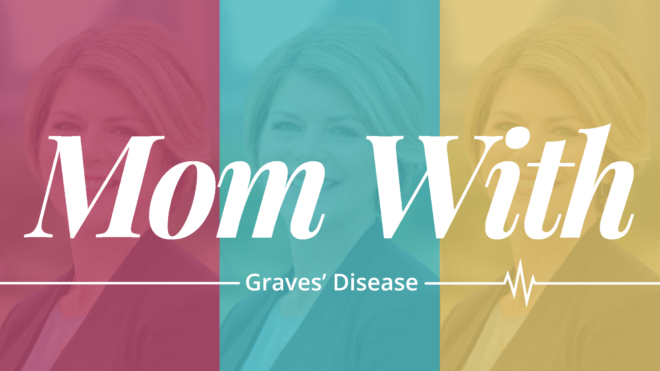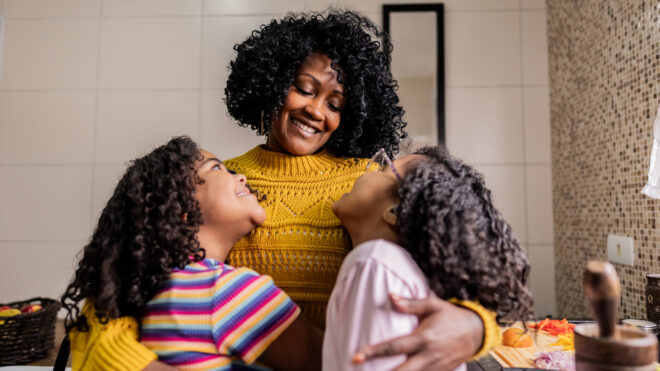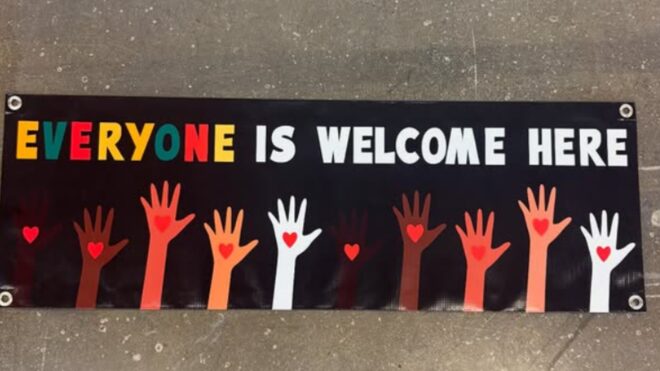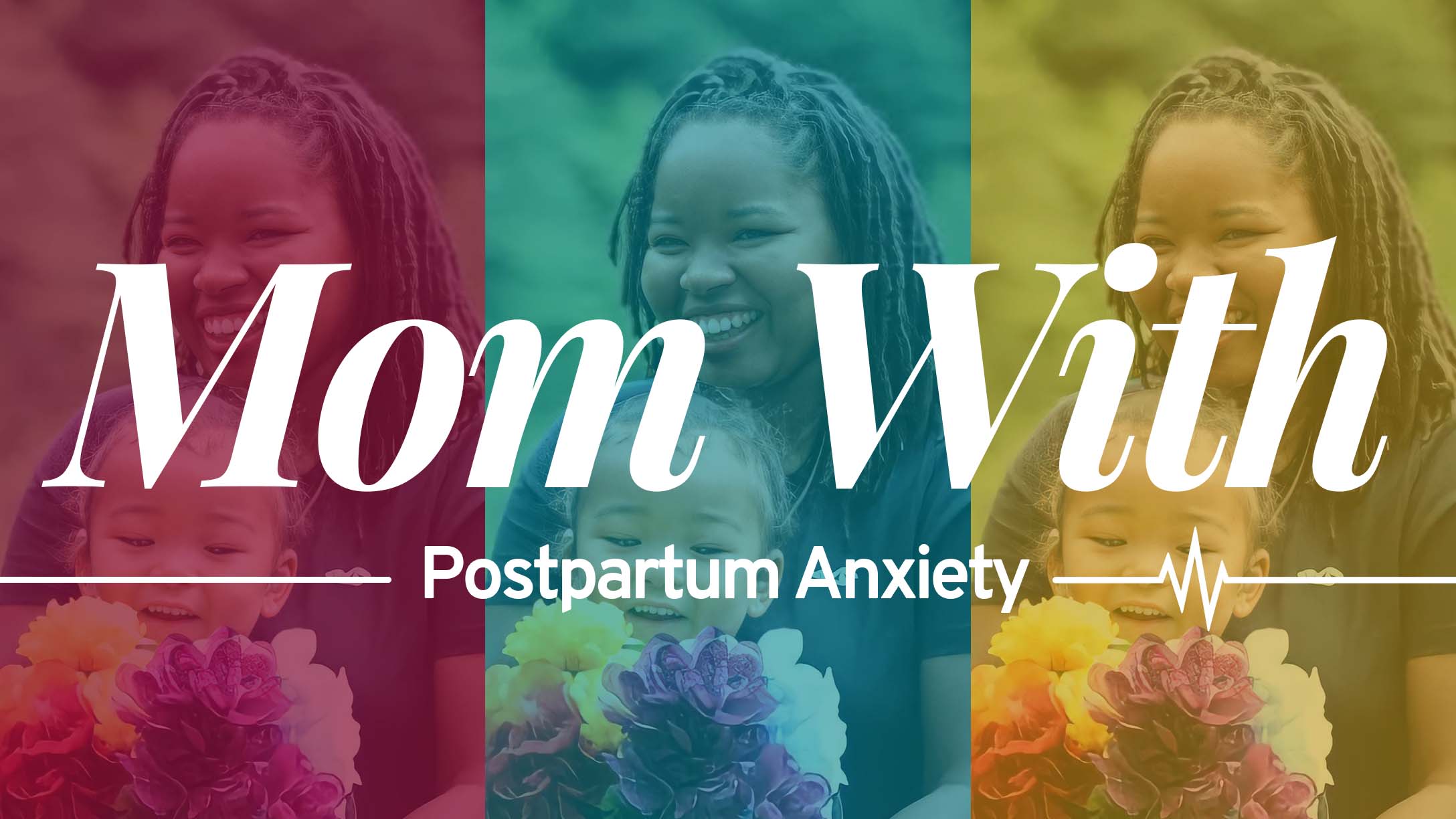
Our monthly column MOM WITH aims to redefine what it means to be a "normal" mother by focusing on how it feels to live with a mental disorder. We see you, we hear you, and we're in this together.
Corritta Lewis is used to high-stress situations. She spent eight years in the military. That’s why it’s been such a challenge to accept feeling weak. And that’s exactly how she felt when she came to realize she was experiencing postpartum anxiety.
“I've struggled with postpartum anxiety since our son was born in 2018,” says Corritta of her little one, whom she shares with wife Mea. "At first, I didn't know what it was or what I was feeling. I would be at work and have severe panic attacks to the point where my hands would shake, and I couldn't type on a keyboard. This was something that I never felt before. It was so bad that I started having debilitating chest pains. This was something that I had never experienced and was scared of.”
Corritta knew she didn’t feel quite like herself and though doctors dismissed her, she advocated for herself. After talking with her primary care physician, she was diagnosed with postpartum anxiety.
We live in a society that is all too quick to dismiss the needs of mothers, especially mothers of color or mothers in the LGBTQ community.
So, when you feel something is not right, fight for yourself until you are heard. Just the way Corritta did. “People who report feeling anxious and/or depressed struggle with just interacting in their daily living,” says Susan Harrington, licensed professional counsellor and marriage and family therapist. Susan runs Maison Vie New Orleans, a therapy and counseling center that caters to making sure everyone can afford mental health treatment. “They struggle just to get out of bed to start home tasks, professional duties, and parenting behaviors."
Like many new mothers, Corritta felt guilty when she had to return to work when her son was only 7 weeks old.
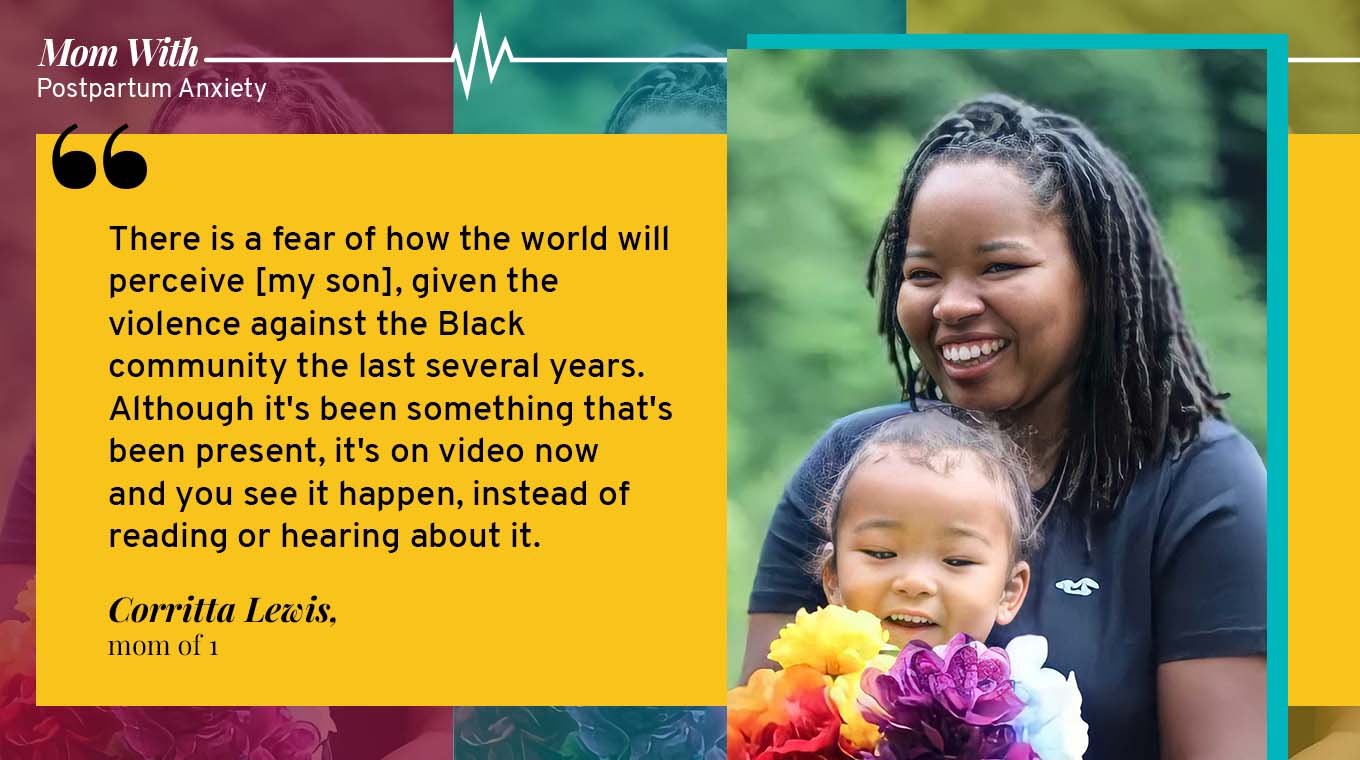
But without paid leave, Corritta and her wife couldn’t continue to live on less than half of her salary. Now that her son is older, she is working remotely. Though she feels less guilt, she understandably continues to feel anxious.
“The current climate doesn't make it any better with Black people, even children, having the police called on them for doing everyday tasks," says Corritta. "This has caused me to be even more anxious."
Corritta relies on therapy to help manage her postpartum anxiety.
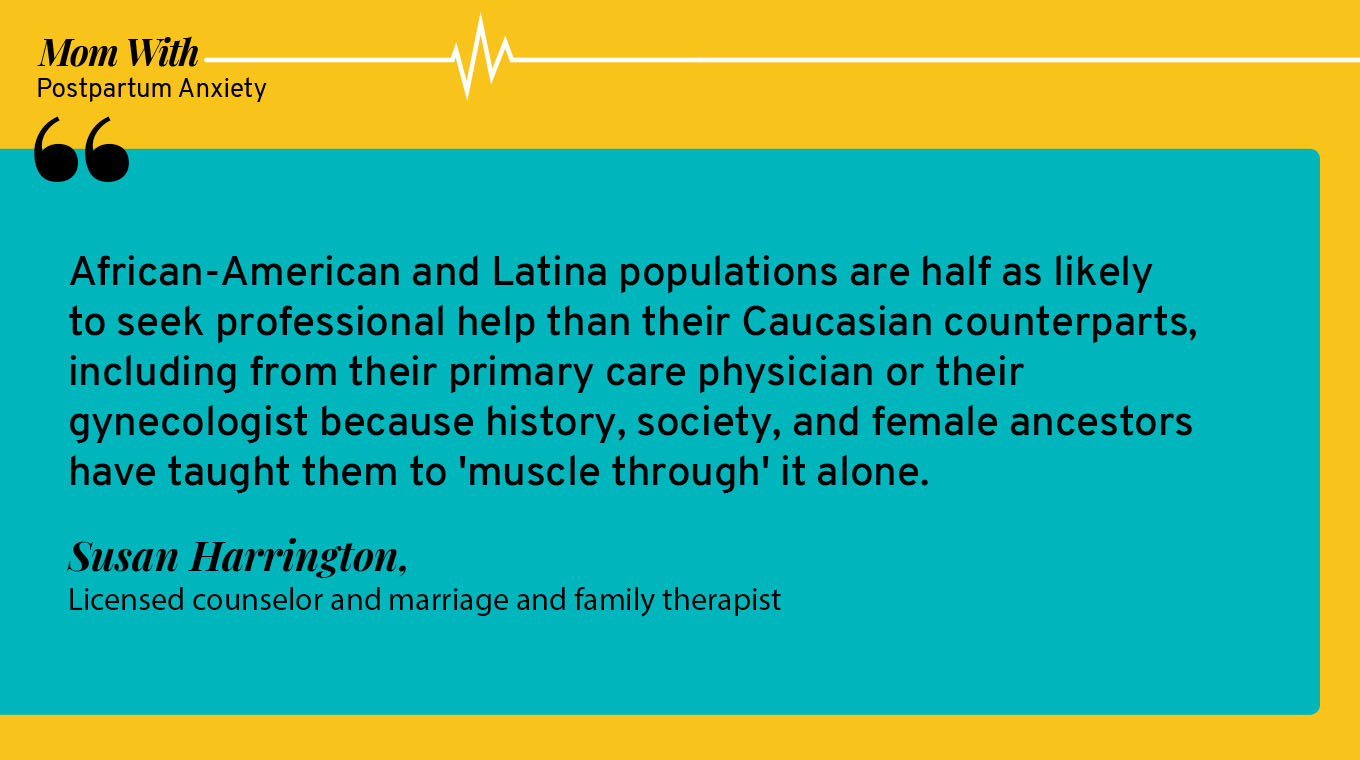
Though she does not go as often as she used to, it is still something that is ongoing, especially given the political climate. The current political climate is enough to bring anyone to tears and for mothers of color who suffer from anxiety, stress, or depression, this has added to their fears.
“I was scared for my son and he's only 3 years old," details Corritta. "There is a fear of how the world will perceive him, given the violence against the Black community the last several years. Although it's been something that's been present, it's on video now and you see it happen, instead of reading or hearing about it.”
Says Susan, "African American and Latina populations are half as likely to seek professional help than their Caucasian counterparts, including from their primary care physician or their gynecologist because history, society, and female ancestors have taught them to 'muscle through' it alone. In other words, act as if the distress is not an issue, be strong, or fake it. The sadder news is that their children still experience their mother’s emotional distress plus this cultural messaging, which means there is a higher probability for the insecure attachment to occur.”
Anxiety and depression are whole-body distresses and therapist Susan has some advice on how to seek help.
“Anxiety and depression impact our mind, our body, our emotions, as well as our spiritual self and our relationships," says Susan. "We need to address treatment of these all-encompassing pains in a whole treatment manner. Medication is a single component that address the brain’s chemical concerns, but that is not the mind. Treatment needs to address each of life's areas."
Susan suggests that if your experience with anxiety and depression is recent, i.e., less than six months, you can begin with adjusting your routine.
a. Work toward getting a full night’s rest.
b. Get a bit of outdoor time and take a stroll.
c. Reconsider the food you are eating and any alcohol or illicit drug use.
d. Think quality over quantity when you plan your social activities.
e. Be intentional and mindful in all decisions, even the small stuff because every decision impacts the next choice you make.
These adjustments can be the first step toward leading a calmer and less anxiety-prone life.
Corritta's days are often filled with some self-doubt or feeling as though she hasn’t been a good mom because she missed out on the earlier parts of her son’s life.
While this may sound strange, it is because she has a clearer head on positive days, that she can recognize and accept her emotions.
“Although I haven't spent a day away from him since he was 14 months old, I still have some guilt," says Corritta. "Even now when I have to work, it makes me feel like I am abandoning him, but I'm here. On those days I push myself to retrain my brain.”
On especially bad days, Corritta can experience a panic attack and have trouble breathing. She can shake uncontrollably, and it can become hard to relax.
Though the attacks don’t usually last longer than five minutes, to Corritta, they can feel like a lifetime.
“This was scary for me the first time because I never experienced it before and as a former servicemember, it feels like I'm being weak," Corritta explains. "My wife does breathing exercises with me that help me to calm down on a rough day. Since we've been out of the US my panic attacks have reduced to less than once a month.”
After making the decision to leave the United States, Corritta started writing a blog called ItzAFamilyThing, which is dedicated to helping families travel more affordably. Children are amazing at picking up on our energy, both the good and the bad. While Corritta’s son is too young to know about her anxiety, he can sense when something is wrong and has the perfect cure.
“When I am having a bad day emotionally, he gives me extra hugs and kisses without saying anything," says Corritta. "For our little busy body, this is a big deal."
Like so many mothers out there, Corritta is doing her best, both for herself and for her family and she does not want society to define what it means to be a good mom.
“As parents, we do the best we can to give our children the best life we can, while being present," she says. "There are no perfect parents, just like there are no perfect children, so remember to give yourself a break.”
A perfect mother doesn’t exist. Our busy schedules can make things challenging, so it’s so important to constantly remind yourself to stop, breathe, and take a moment. For mothers who suffer with anxiety, stress, or depression, this can be an exceptional challenge, but it is essential.
“We are all flawed individuals and taking the time to recognize and work on your disorder/illness or just rotten day makes you badass," notes Corritta. "You aren't defined by your disorder; you're defined by the things you do to continue to persevere."

